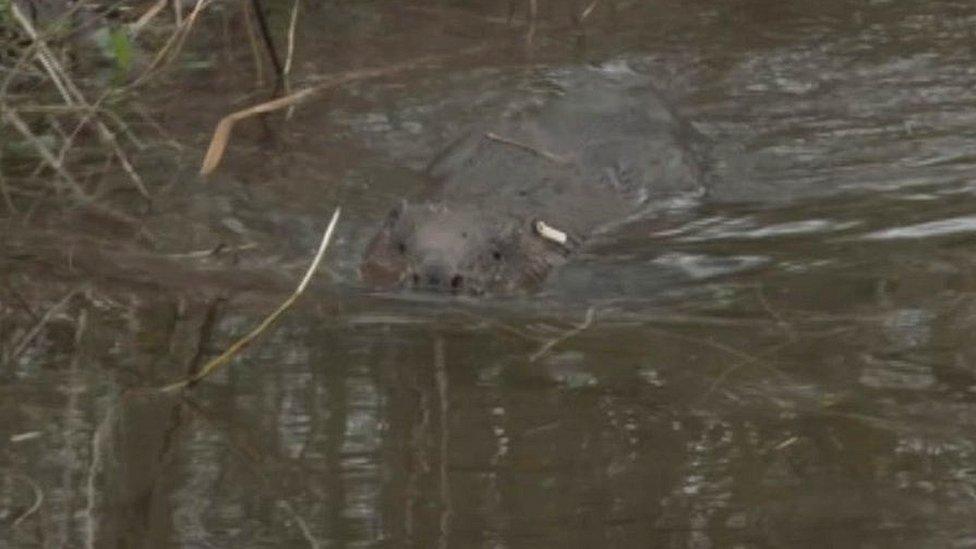Essex beavers project: Flood-defence duo produce offspring at Spains Hall Estate
- Published
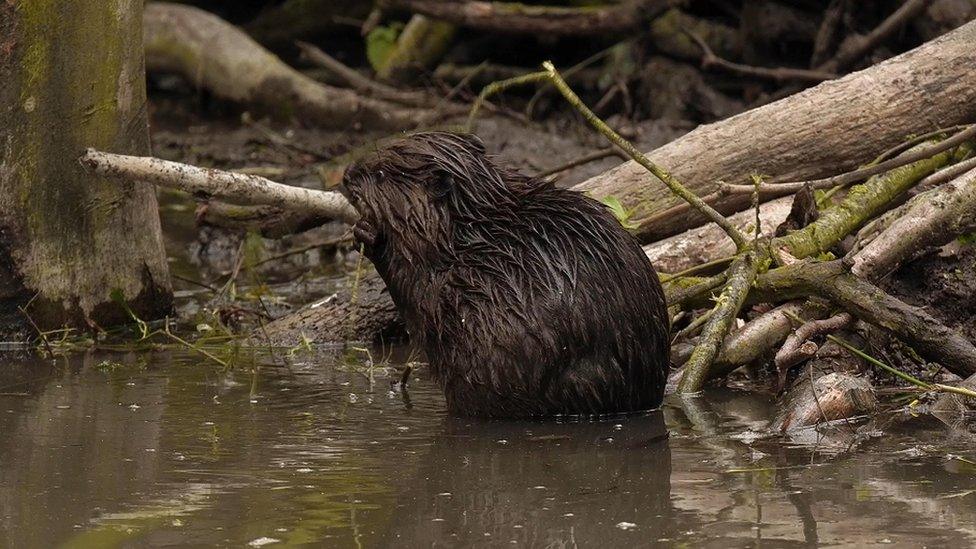
The beaver kits are both healthy, the Environment Agency said
A pair of beavers released into the wild in Essex for the first time in 400 years have had two offspring.
The Eurasian beavers were bred in captivity and introduced at the Spains Hall Estate near Braintree, in 2019 to try to reduce flooding.
The estate delayed announcing the new births, thought to have been in March.
Archie Ruggles-Brise, estate manager, said: "If they are anything like their parents [they] will become phenomenal dam builders".
The new parents were filmed at work last year
The mammals were hunted to extinction in England centuries ago, but have since been gradually reintroduced.
The estate at Finchingfield flooded in 2012 and 2014.
The Environment Agency said that since their introduction to the habitat last year, the beaver parents, named Woody and Willow, had been "working relentlessly".
The animals' dam-building has created a wetland area which holds the water at a higher level upstream, reducing flooding downstream.
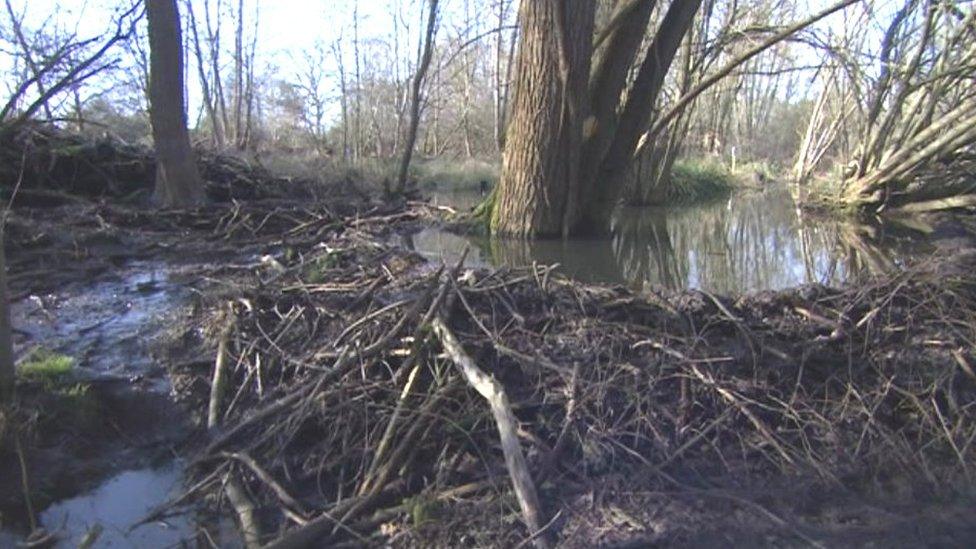
The beavers have created dams using sticks and mud
Mr Ruggles-Brise said: "We are delighted our beavers have settled in so well that they have bred successfully.
"We always hoped their woodland home would provide the right habitat to support a family, and the arrival of two kits is fantastic news.
"We will be watching closely as they expand the wetland and provide even more protection against flood and drought, and provide homes for loads of other wildlife."
The beavers' dam-building efforts have been complemented by a human-made flood management scheme on a second strand of Finchingfield Brook, which features a "leaky dam" approach consisting of tree branches or trunks secured across the watercourse, which helps slow the flow after heavy rain.
- Published30 January 2020
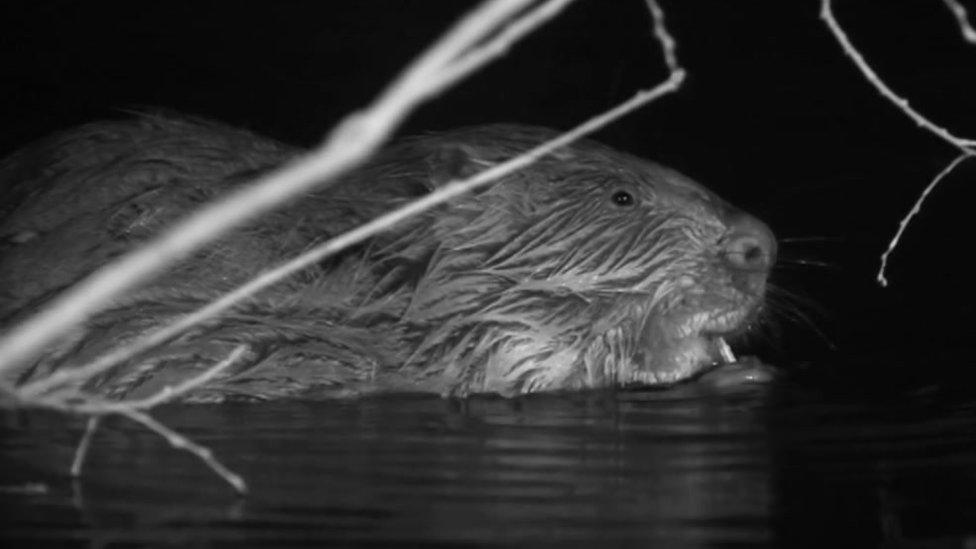
- Published21 May 2019
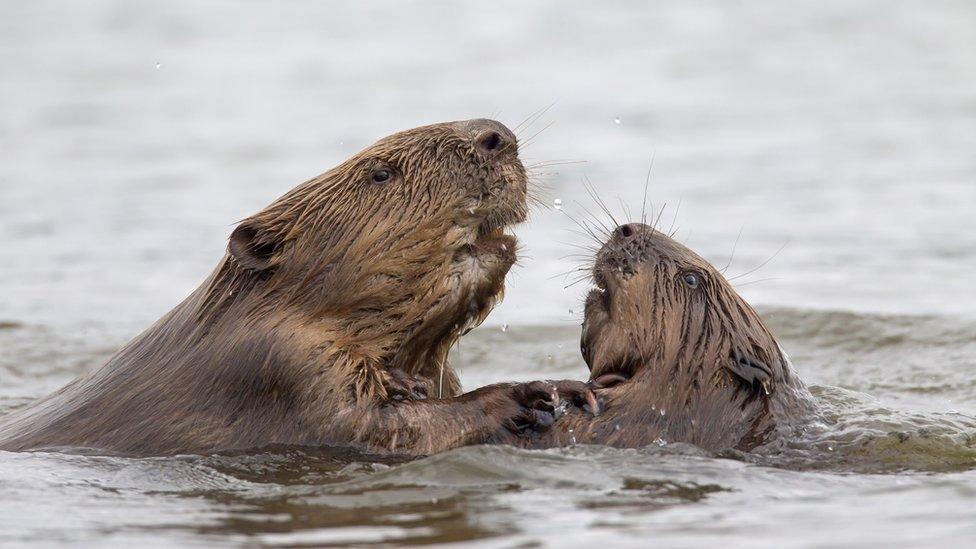
- Published17 March 2019
